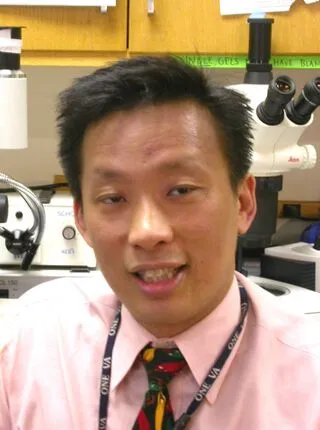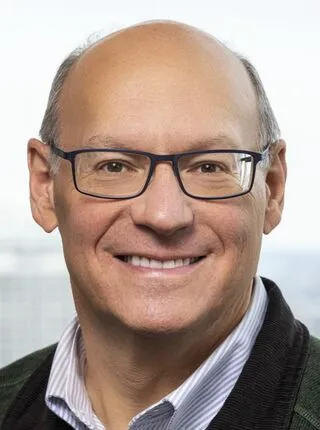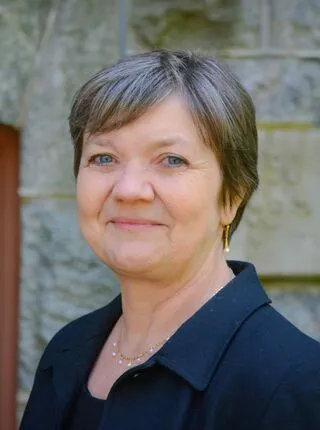Faculty Advisory Committee
Faculty Spotlight: Greg Bashaw, PhD
 My lab runs a high school outreach program in the School District of Philadelphia. Our program DrosoPHILA was initiated in 2014 and includes hosting high school teachers for paid summer internships in the lab and working with teachers and students in the classroom to conduct hands-on experiments designed to improve science identity, quantitative reasoning and understanding of biology. DrosoPHILA was developed and is sustained by a continued collaboration between members of the Bashaw lab, experienced outreach educators, and teachers in the School District of Philadelphia. Since the program’s inception, we have collaborated with 18 teachers and over 2,400 students. Student outcome data indicates significant positive attitude shifts around science identity and grade-appropriate knowledge gains.
My lab runs a high school outreach program in the School District of Philadelphia. Our program DrosoPHILA was initiated in 2014 and includes hosting high school teachers for paid summer internships in the lab and working with teachers and students in the classroom to conduct hands-on experiments designed to improve science identity, quantitative reasoning and understanding of biology. DrosoPHILA was developed and is sustained by a continued collaboration between members of the Bashaw lab, experienced outreach educators, and teachers in the School District of Philadelphia. Since the program’s inception, we have collaborated with 18 teachers and over 2,400 students. Student outcome data indicates significant positive attitude shifts around science identity and grade-appropriate knowledge gains.
The Community-Engaged STEM certificate program is overseen by a Faculty Advisory Committee consisting of Penn faculty involved in engagement work. Each certificate student is mentored by a faculty member within the advisory committee. Following an initial planning meeting with their Advisor upon commencement of the Program, students will then meet periodically to plan service opportunities as well as pre-approved electives and capstone experiences.
Greg J. Bashaw, PhD
Professor of Neuroscience
gbashaw@pennmedicine.upenn.edu
215 898-0829
My lab runs a high school outreach program in the School District of Philadelphia. Our program DrosoPHILA was initiated in 2014 and includes hosting high school teachers for paid summer internships in the lab and working with teachers and students in the class room to conduct hands-on experiments designed to improve science identity, quantitative reasoning and understanding of biology. DrosoPHILA was developed and is sustained by a continued collaboration between members of the Bashaw lab, experienced outreach educators, and teachers in the School District of Philadelphia. Since the program’s inception, we have collaborated with 18 teachers and over 2,400 students. Student outcome data indicates significant positive attitude shifts around science identity and grade-appropriate knowledge gains.
Cindy Christian, MD
Assistant Dean for Community Engagement, Perelman School of Medicine
christian@chop.edu
215-590-2058
I am a Professor of Pediatrics and serve as the Assistant Dean for Community Engagement for the Perelman School of Medicine. My career has been dedicated to the care and protection of abused and neglected children. In this capacity, I have worked with local, state, national and international governments and other organizations to advocate for early detection and prevention of maltreated children. In my role as Assistant Dean, I support the community volunteer work of Perelman medical students, who have worked with community partners to improve access to health care for Philadelphians over many years.
Horace Delisser, MD
Associate Professor of Medicine
delisser@pennmedicine.upenn.edu
215-898-4409
I serve as the Associate Dean for Diversity and Inclusion for the medical students. In that role I oversee the involvement of medical students in community health and engagement though their efforts in providing student-led clinical care, social services, high school educational enrichment and social justice advocacy. I have also been involved in the development of curricula and programming that foster the development of cultural and structural competences.
Dennis DeTurck, PhD
Robert A Fox Leadership Professor of Mathematics
deturck@math.upenn.edu
215-573-9036
I am the founding director of the Moelis Access Science program, which brings undergraduate and graduate students into West Philadelphia schools to support math and science education. I am also the Senior Faculty Fellow at the Netter Center.
Lori Flanagan-Cato, PhD
Associate Professor, Psychology; Co-director, Undergraduate Neuroscience Program
flanagan@psych.upenn.edu
215-898-4085
Lori Flanagan-Cato, PhD Website
My community engagement work centers on providing better science education access for local Philadelphia high school students. I teach an academically based community service course to undergraduates, called Everyday Neuroscience, which partners with a local high school to accelerate biology learning for 10th graders. In addition to the educational benefits for the high school students, I have found improvements in participating college students' professional skills and social well-being. In 2023, with BGS student Erin Purvis, I launched an academically based community service course for graduate students, called Biomedical Studies in the Urban Curriculum.
Carmen Guerra, MD, MSCE
Professor of Medicine
cguerra@pennmedicine.upenn.edu
215-349-5374
My work is focused on better understanding and overcoming barriers to the early detection of cancer and participation in cancer clinical trials. I am also interested in increasing diversity, equity and inclusion of the academic workforce.
Joanna Hart, MD, MSHP
Assistant Professor of Medicine and Medical Ethics & Health Policy
joanna.hart@pennmedicine.upenn.edu
267-275-0665
My research focuses on improving the experience and equity of serious illness care for patients and their families, including in both community and health system based settings. I partner with community and patient advocacy organizations and community advisory boards to conduct research on topics such as chronic lung disease, tobacco treatment, informal family caregiving.
Gary D. Kao, MD, PhD

Associate Professor, Department of Radiation Oncology
Gary.Kao@pennmedicine.upenn.edu
215-573-2285
My community engagement passion includes mentoring and paving the way for the next generation of scientists/ translational researchers to establish productive, fulfilling careers while crafting future breakthrough discoveries and treatments. I have been faculty here at Penn for many decades and as PI, my research and administrative work has ranged from wet and dry lab research to clinical trials to web and social media outreach support.
Daniel Kessler

Associate Professor, Cell and Developmental Biology
kesslerd@pennmedicine.upenn.edu
215-898-1478
I serve as chair of the Cell and Molecular Biology graduate group, co-director of the PennPREP Post-Bac program, and chair of the Cell and Developmental Biology DEI Committee. In these roles I have created opportunities for trainees and faculty to engage with the local community, including the design and support of programming to host local public school students in PennMed laboratories and facilitate the contribution of graduate students to the teaching and mentoring of West Philly students. I served as program co-director with Dr Jamie Shuda for Bridge to REBIO, a high school science outreach program. With Dr Shuda, I co-directed Teaching and Learning Regenerative Biology, an Academically Based Community Service course for undergraduates. I established a partnership between Cell and Developmental Biology and the Office of Outreach, Education and Research, providing laboratory placements and professional development for high school students participating in the OER Summer Internship Program. I am committed to strengthening the connection between Penn and the Philadelphia community through the development of research opportunities and understanding.
Heather Klusaritz, PhD, MSW
Director of Community Engagement, Penn Center for Public Health Initiatives
heather.klusaritz@pennmedicine.upenn.edu
215-746-1849
I am the Director of Community Health Services for the Penn Medicine Center for Health Equity Advancement, the Director of Community Engagement for the Center for Public Health Initiatives at the University of Pennsylvania, and a faculty member in the Department of Family Medicine & Community Health and the Masters of Public Health program at the Perelman School of Medicine. I am a health policy scholar with expertise in community engagement and social determinants of health, and my research centers on health system design to improve access to care for historically and contemporarily marginalized populations and eliminate disparities in access and outcomes. I employ community-based participatory and qualitative methodologies to identify best practices in health care and public health service delivery to meet community health needs, with a particular focus on integrated behavioral health and opioid use disorder. I work to bridge the divide between academic health systems and the communities they serve, with a focus on creating mutually beneficial sustained partnerships in which community voice is centered. I work collaboratively with multiple community partners throughout the Philadelphia region to improve the health of underserved communities. I co-lead Penn Medicine’s Community Health Needs Assessment and implementation processes, fostering a collective impact model that aims to minimize redundancies and fragmentation, to ensure that the health needs of the community are met by a truly integrated health care delivery system with a focus on greater impact. Currently, I am a Co-Investigator on and lead the Community Engagement Cores for three NIH awards and three HRSA Primary Care and Public Health Workforce awards.
Mona Merling, PhD
Assistant Professor, Department of Mathematics
mmerling@math.upenn.edu
215-898-2417
I manage the collaboration with the Prison Teaching Initiative at Princeton. As part of this, together with a large group of Penn graduate students in STEM, I design and teach accredited college level mathematics classes in NJ prisons. I also teach an academically based community course in mathematics at Penn in collaboration with the Netter Center. In this course, Penn students work with Paul Robeson high school students to sharpen their math skills and inspire them about studying math and science. I have also mentored two summer projects as part of the the Penn Graduate Community-Engaged Research Mentorship program.
Mecky Pohlschröder, PhD

Professor of Biology
pohlschr@sas.upenn.edu
215-573-2283
I integrate scientific research, education, and community partnership to empower students and broaden access to STEM. My lab, next to studying basic cell surface biology, has developed hands-on biology experiments that are both scientifically rigorous and accessible to under-resourced schools, and invites students from these communities into the lab to experience authentic research. As founder and director of the FERBS program at Penn, I support first-generation, low-income undergraduates through a holistic curriculum that combines mentored research, leadership development, and community engagement. Central to my work is the belief that students can meaningfully contribute to their communities through science at every stage of their training—and that research is most impactful when informed by and conducted in collaboration with the communities it seeks to serve.

